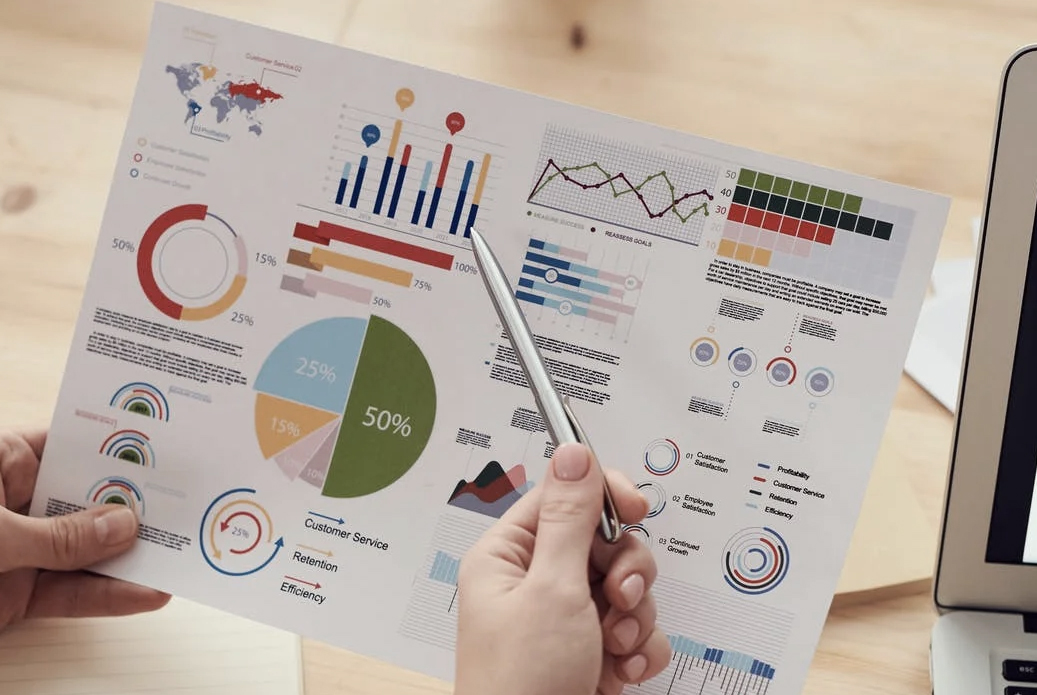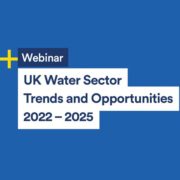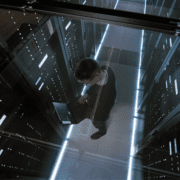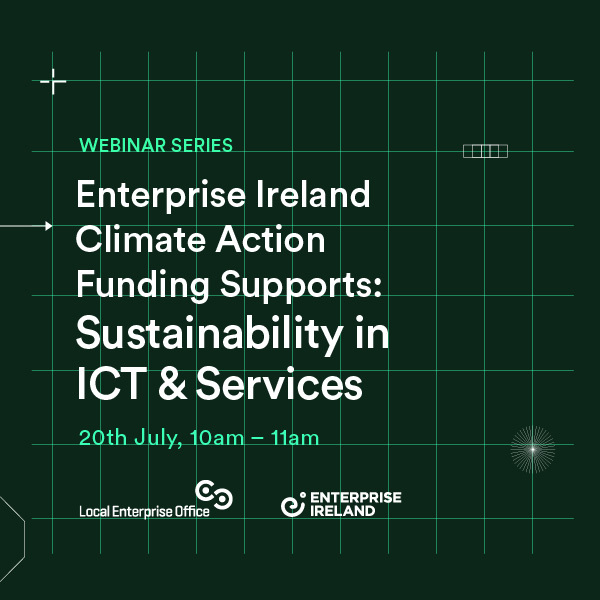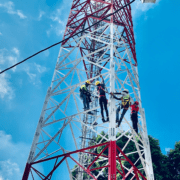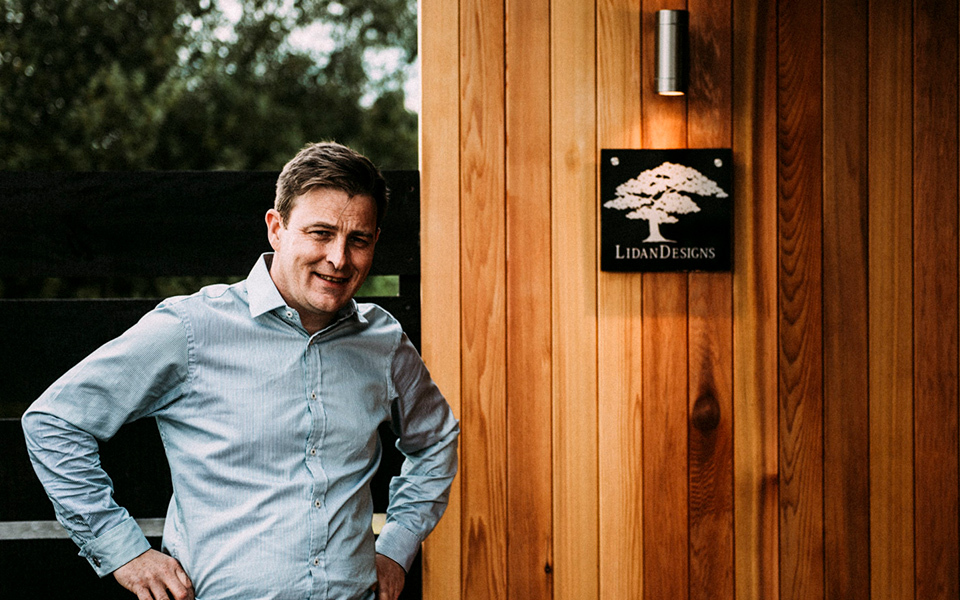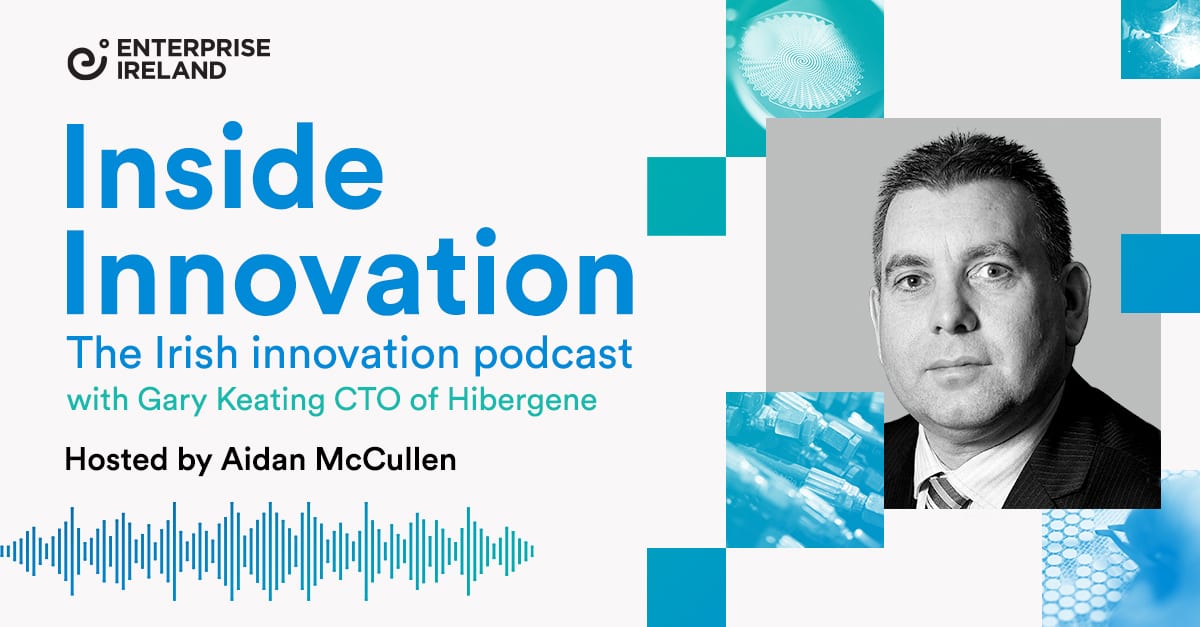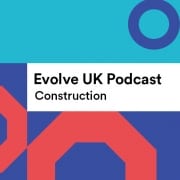Summary
- The expertise of Irish high-tech construction companies is well-known in France and Germany, with many home-grown businesses active in the markets
- There are opportunities for Irish firms to get involved in French and German construction projects, particularly data centre design and building
- Enterprise Ireland is supporting clients that wish to attend the Data Centre World events in Frankfurt during May 2022 and Paris during November 2022
As global events impacted on industry across every sector, technology, and our reliance on it has never been more important, with businesses keen to learn about advances in digital solutions and data collection.
For instance, this was reflected at a range of Data Centre World events across Europe which garnered a huge amount of interest from companies around Ireland.
The largest gathering of data experts in France took place in Paris Porte de Versailles on 24 November 2021 and was attended by almost 1,700 industry experts, with 59% of attendees looking to invest more in associated products and solutions.
The French market
According to Alix Derigny, Enterprise Ireland Market Advisor – Construction & Sustainable Build in France, more than half of the attendees, including many Irish clients, were from organisations whose primary business is data centre design and build.
“Although some had to cancel due to the pandemic, a number of Enterprise Ireland clients visited, including Mercury Engineering, who exhibited there for the second time and other client companies like Moy Materials and Cubis Systems,” she says. “It was a very busy tradeshow, with great networking and fruitful meetings with large data centre projects managers who were interested in the solutions offered by Irish companies.”
“Sustainability is a major issue for the high-tech construction sector and, with a commitment to be climate neutral by 2030, Irish innovation in this area was of particular interest.”
According to a study by the consultancy Arcadis, France now ranks fifth in Europe in terms of attractiveness for setting up data centres. Interxion has submitted plans in Les Ulis for a 130 MW campus, DATA4 is looking to construct a 100 MW campus expansion, and CloudHQ has recently submitted plans for a two-building hyperscale build in Lisses, for a total of nearly 400 possible MW coming online over the next decade.
Success for Irish companies in France
Derigny, whose role involves supporting Irish capabilities across the construction industry in France, says there is plenty of Irish success in the region and many opportunities up for grabs.
“2020 and 2021 have been synonymous with great success stories for Irish companies in France,” she says, “There are several Enterprise Ireland clients active in the French market including Ethos Engineering, E&I Engineering, Anord Mardix, LPI Group, Enersol, Fireblock, King Environmental, CET Connect and Evercam.
Trends in the French high-tech construction sector
“There are two major trends in the French construction market which present opportunities to Irish companies: the roll-out of the largest transport project in Europe, the ‘Grand Paris Express’ (2015-2030), and a move towards sustainability through certifications, CO2 reduction targets and market-led initiatives in ‘green building’.
Long considered as a potential hub for hyperscale construction, Paris could potentially more than double in size as a data centre area. Existing investment is heavily centered in its capital, with Paris accounting for over 70% of the country’s current data center footprint. Equinix, Interxion, Orange, Mipih, Colt DCS, Digital Realty and Atos are the prominent investors in the market.
The German market
France isn’t the only option for Irish firms in this space. Tim Flache, Enterprise Ireland Market Advisor – Construction in Germany and Austria, says there is also plenty of opportunity for Irish high-tech construction companies in that market.
“After the US, Germany is the second largest data centre market worldwide,” he says.
“The main data centre hub in Germany is Frankfurt, and with the DE-CIX the city has the internet exchange with the most data throughput worldwide and it has not reached its peak yet, with 230 MW under construction and a potential of another 500 MW – so there will be plenty of business over the coming years.
“Equinix alone announced in 2021 its intention to build five new data centres and invest $1.14 billion USD in Frankfurt over the next years. Other locations in Germany like Berlin (37 MW under construction) and Munich (12 MW under construction) also present opportunities.
Success for Irish companies in Germany
There are many success stories already in the region with Irish contractors, subcontractors, and suppliers active in the German data centre market. Some of these include well-known Irish companies likes Mercury, Winthrop, and Collen.
“These companies deliver large scale co-location data centre projects all over Europe and have been active in Germany for several years. Smaller subcontractors and suppliers are also active in the German market and are winning projects.”
Trends in the German high-tech construction sector
Flache, who is based in Dusseldorf, says the biggest topic at Data Centre World is sustainability.
“As in many other countries, the data centre industry in Germany is under pressure to become more sustainable and climate friendly,” he says.
“With the Climate Neutral Data Centre Pact, the industry committed, on a European level, to a more sustainable future for data centres and to become climate neutral by 2030.”
“This ambitious goal also impacts the design and construction of data centres, which is where Irish capabilities lie.”
Beyond data centre projects, the high-tech construction market in Germany has more to offer. Over the last years, several battery manufacturing facilities have been announced and large semiconductor manufacturers are looking for suitable sites in Germany. The main pull factor for these projects is the German automotive industry.
Differences between the French and German markets
While the European single market makes both Germany and France attractive target markets for Irish companies, there are some differences clients should be aware of when it comes to labour law, taxation, and certification.
“Companies beginning operations in France must ensure all contracts adhere to French law, for legal and commercial reasons”, says Alix Derigny.
“France is among the easiest countries to set up a business. The guichet-entreprises.fr service encourages business creation in France by enabling anyone to complete the formalities necessary to create their activity in one place online. Only a few days are required.
“With regard to tax structures: corporate tax rates in France are gradually reducing. In 2021, the standard corporate income tax rate is 26.5%, a figure which will fall to 25% in 2022. Corporations with profits of more than €500,000 must pay a rate of 27.5%. A reduced rate of 15% is also available to small companies on the first €38,120 of taxable profits.”
Tim Flache says the federal system in Germany influences certification and safety standards in the construction industry.
“Fire safety regulations, for instance, can differ between the different states (Bundeslaender),” he says. “Companies should be aware of these differences, even within the German market. Also, when it comes to sending staff to Germany, certain time limitations and country specific labour agreements have to be considered.”
Business culture
The market experts say Irish businesses looking to expand in Europe should be aware of both the opportunities and requirements.
“Irish companies may face challenges in the French market because of the time and patience needed to manage lengthy sales cycles and due diligence processes. However, if approached correctly, France can be a very significant and lucrative market for innovative, leading-edge Irish companies.” says Derigny.
“A partnership agreement with a local organisation may act as a way of gaining foothold in the market or building sales opportunities in sectors that might be difficult to penetrate as a new entrant.”
The Irish Advantage in high-tech construction
Tim Flache agrees and says there is plenty of help on offer from Enterprise Ireland.
“The unique experience and know-how of the Irish high-tech construction sector is well known in the German data centre sector, which is a great foundation for every Irish company active in this field.”
“However, Germany is a mature market, so, for many of our clients, a proven route to market is the existing relationship to Irish contractors, who are already active in Germany. This can be helpful to win an initial project and build a track record.”
“I am more than happy to help further clients with their business in Germany. Enterprise Ireland clients can either get in touch with me directly or through their Development Advisor.”
Want to find out more about high-tech construction opportunities in France or Germany? Contact Alix Derigny or Tim Flache respectively.
In 2022, Data Centre World will be back in Frankfurt (11 – 12 May) and Paris (16 – 17 November). Enterprise Ireland are supporting clients at this event. If you are interested in attending, or learning more about our plans, get in touch with Alix or Tim.

